Are you considering canceling your domain name registration? Whether it's due to changing business goals or simply not needing that web presence anymore, navigating the cancellation process can feel a bit overwhelming. But don't worry, you're not alone in this decision! Check out our guide for a straightforward cancellation letter template that will make the process a breeze, and let's dive into the steps you need to follow.
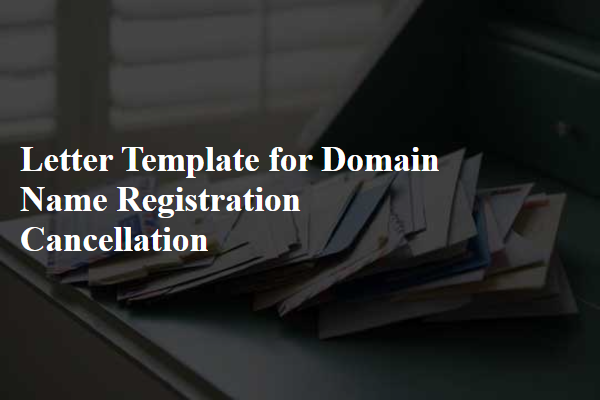
Domain Name Details
The cancellation of a domain name registration involves several critical aspects that need clear communication. The domain name, which uniquely identifies a website, may be associated with registrars like GoDaddy or Namecheap. Noteworthy information includes the domain name itself (e.g., example.com), the registration date (often a year from the original purchase), and the expiration date, which influences the remaining time before the cancellation takes effect. Specific reason for cancellation, such as shifting business focus or financial constraints, should be detailed. Additionally, mention of any related services, like web hosting or email accounts associated with the domain, can impact the decision-making process. Providing personal or business information, including the registrant's name, email address, and contact number, ensures the registrar can validate and process the cancellation request effectively.
Registrant Information
The process of cancelling a domain name registration requires clear identification of the registrant's information, which typically includes the full name of the individual or business, the mailing address encompassing city, state, and zip code, a valid email address used for management and notifications, and a contact phone number for verification purposes. This data ensures that the registrar can accurately process the cancellation request and confirm the identity of the entity seeking to relinquish their rights to the domain name. Providing detailed and accurate registrant information prevents potential disputes or delays and facilitates a smooth cancellation process.
Cancellation Request Statement
The cancellation of a domain name can lead to the loss of online presence and potential business interruptions. Domain names, such as .com or .org, serve as digital addresses representing businesses or personal brands. A request for cancellation must include identification details like the domain name in question and the registrar's name. It is essential to note deadlines for cancellation to avoid auto-renewal fees, which often occur annually. The impact of such cancellations can affect search engine rankings, email services, and overall digital identity, making it crucial to handle the process thoughtfully. Additionally, ensuring that all associated services like hosting or email are also addressed can prevent unexpected disruptions.
Effective Date
Domain name registration cancellations can occur for various reasons, including non-renewal of services or transfer requests. The effective date of cancellation is crucial, as it specifies when the domain will no longer be active. For example, if a domain registered with a provider like GoDaddy was initially set to expire on December 31, 2023, an effective cancellation notice submitted on November 15, 2023, would result in the domain's deactivation on that date. Users must ensure all registration details, such as the domain name (like example.com) and account information, are correctly referenced to avoid confusion. It's also important to initiate this process promptly to prevent unintended renewal charges from service providers.
Acknowledgment of Terms and Conditions
Domain name registration cancellation requires a thorough understanding of the specific terms and conditions outlined by the registrar. Acknowledgment involves a detailed examination of contractual obligations, such as registration fees, renewal policies, and data privacy protections that may apply. Registrars like GoDaddy or Namecheap typically stipulate that customers must submit cancellation requests through designated platforms, often within specific timeframes to avoid unwanted charges. Additional clauses might include procedures for the release of domain names, implications for website availability, and potential financial consequences associated with early termination. Therefore, comprehending these terms is crucial before proceeding with cancellation to avoid complications.

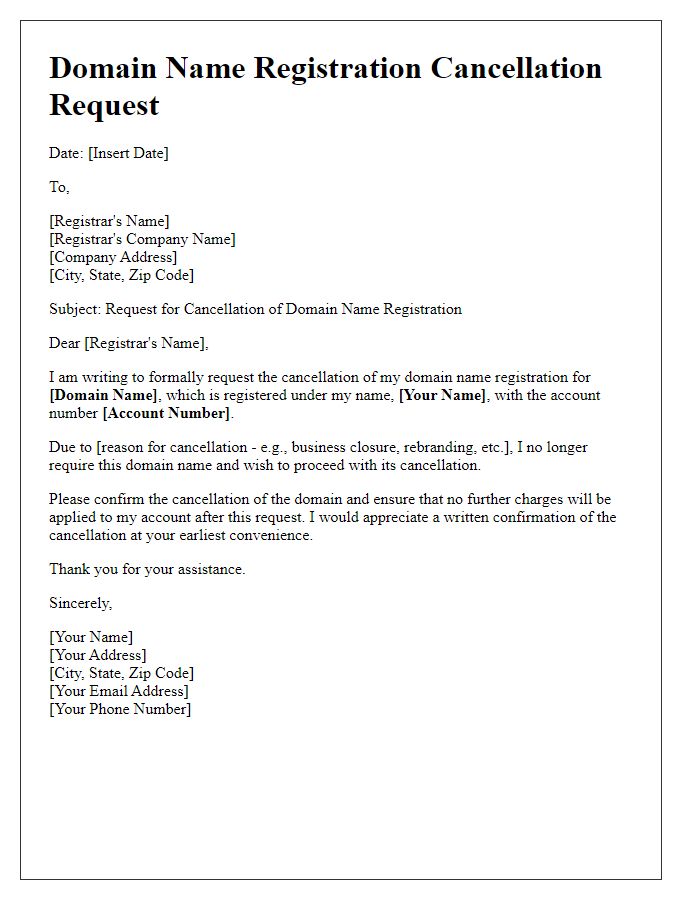
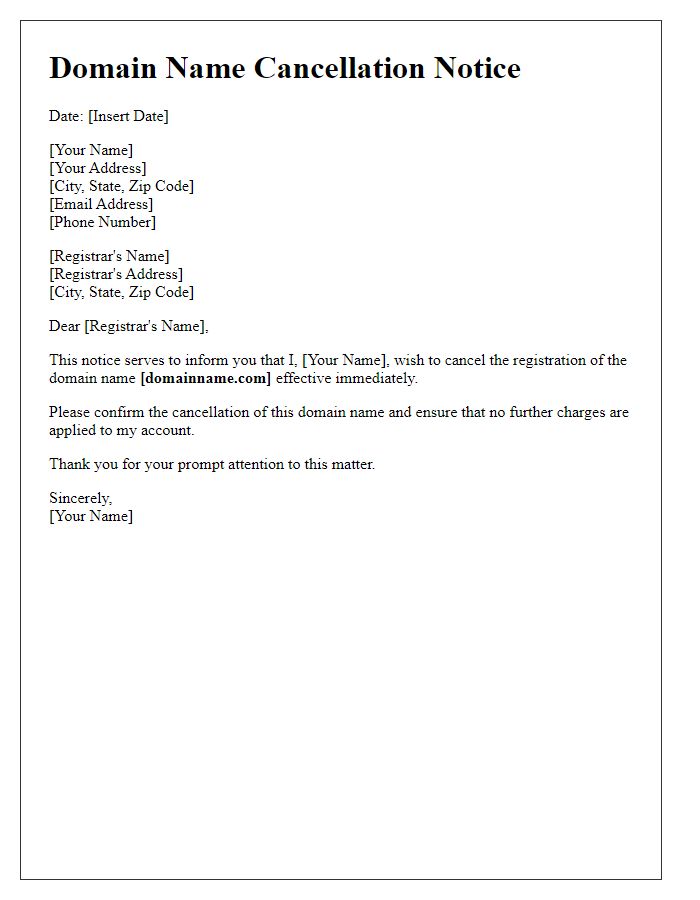
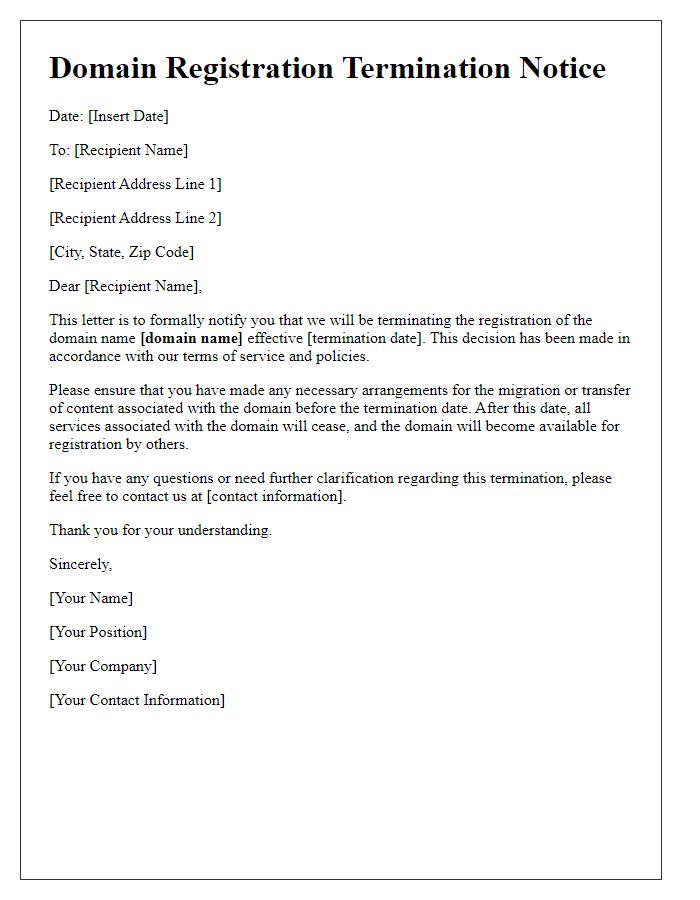
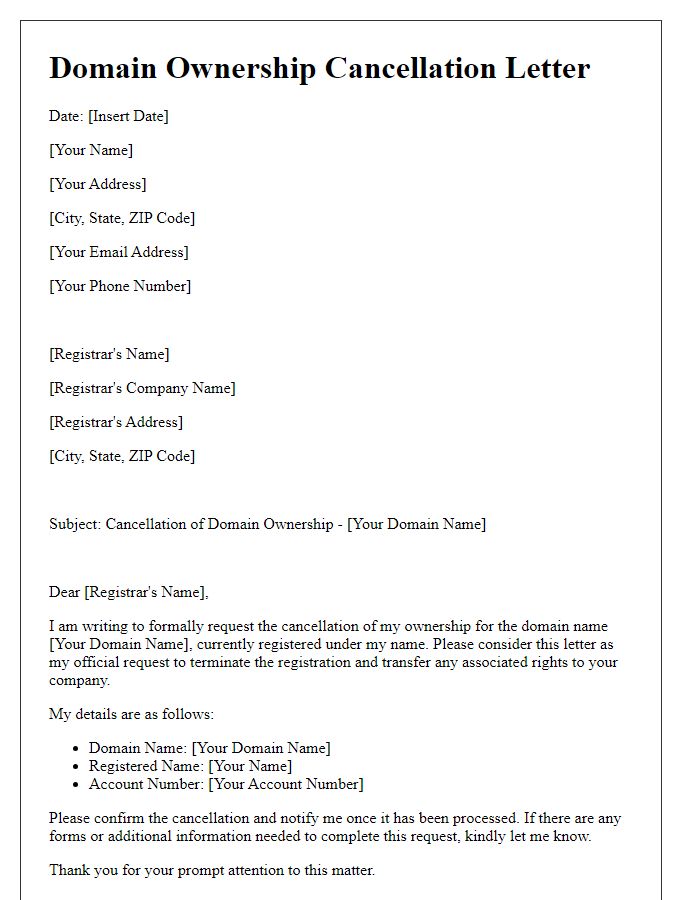
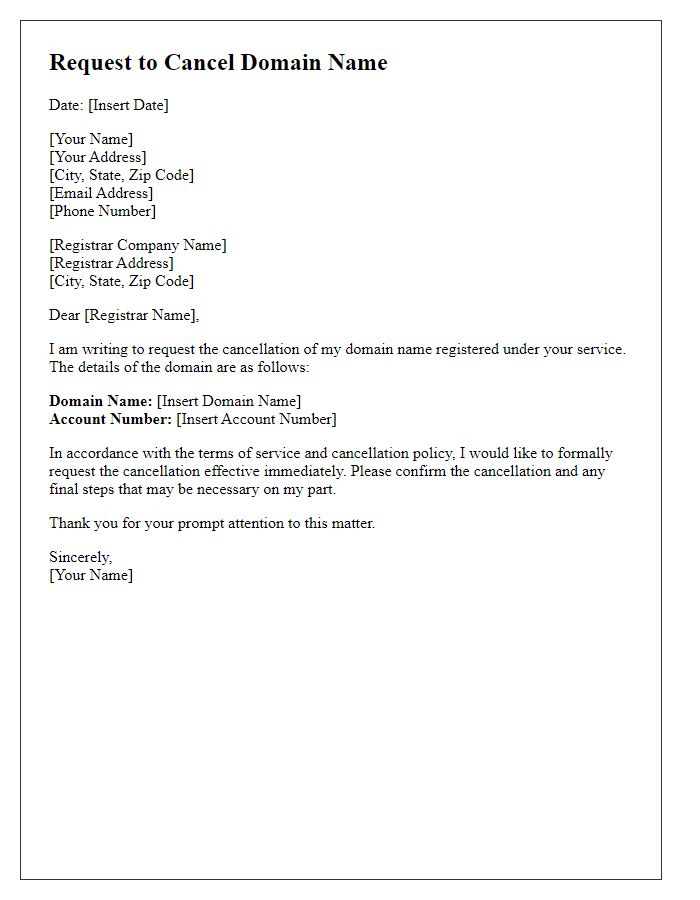
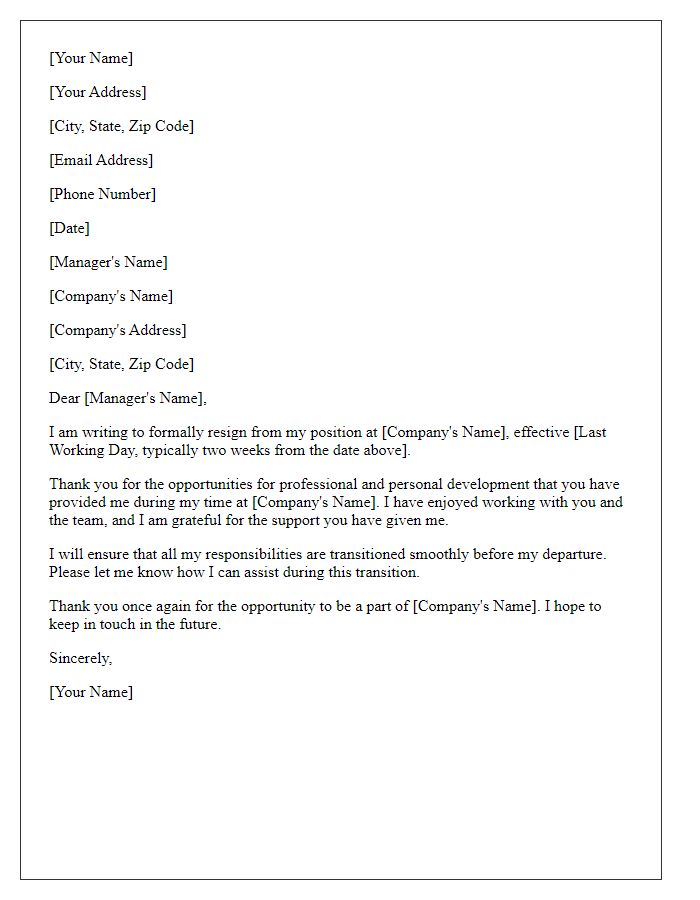
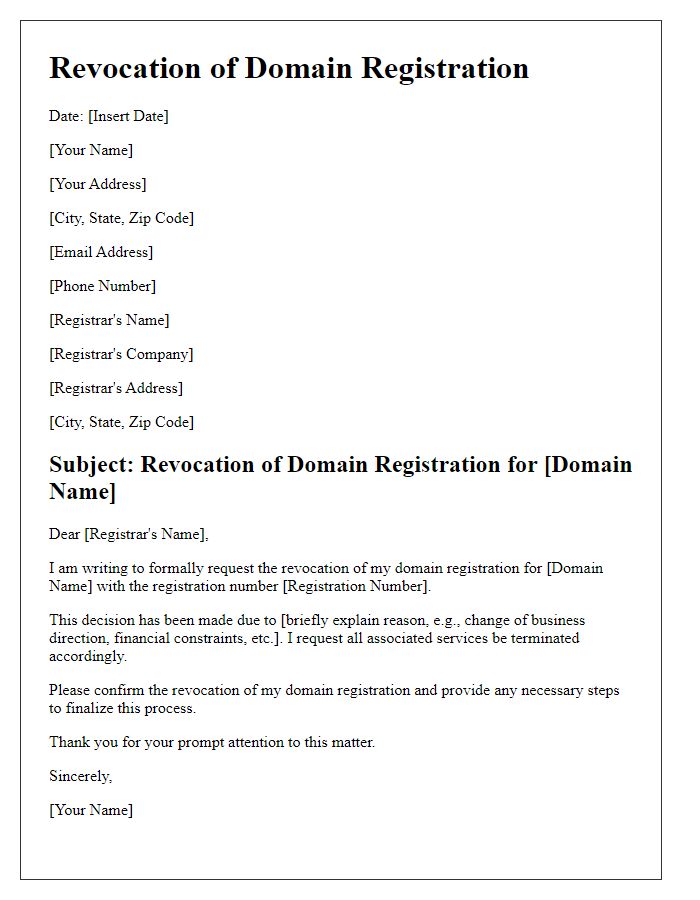
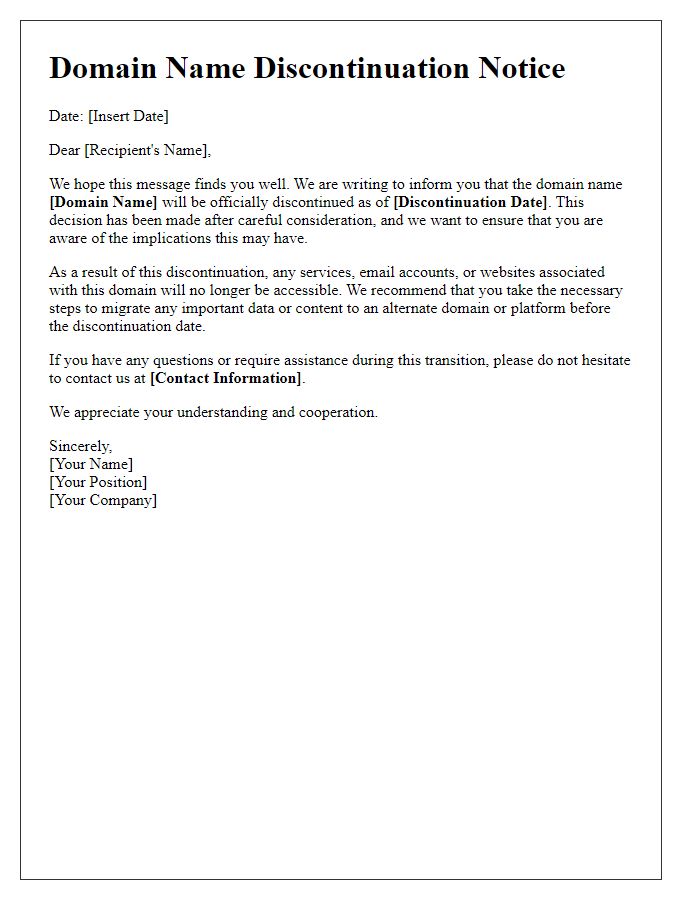
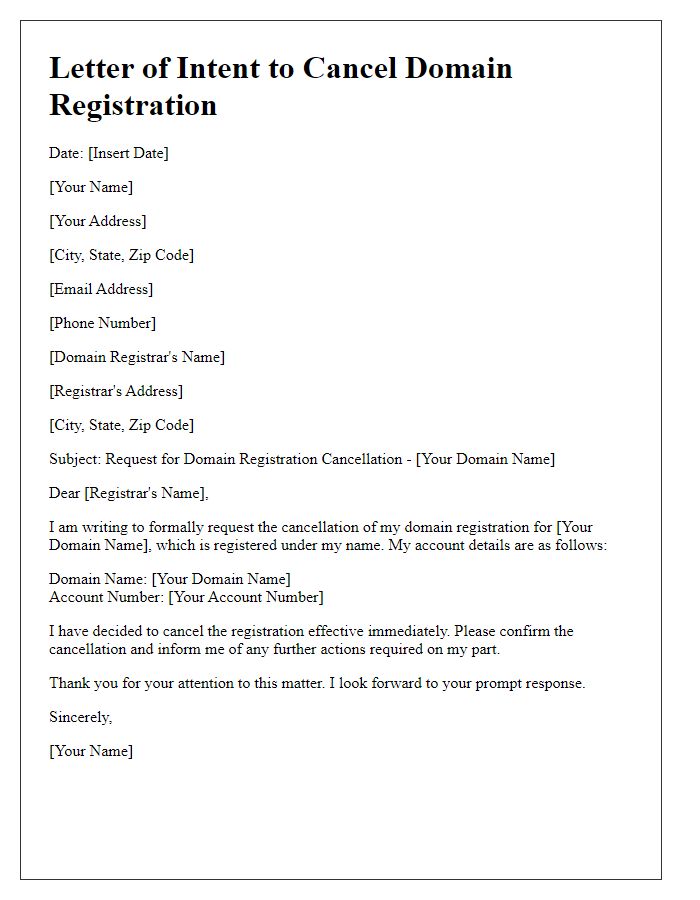
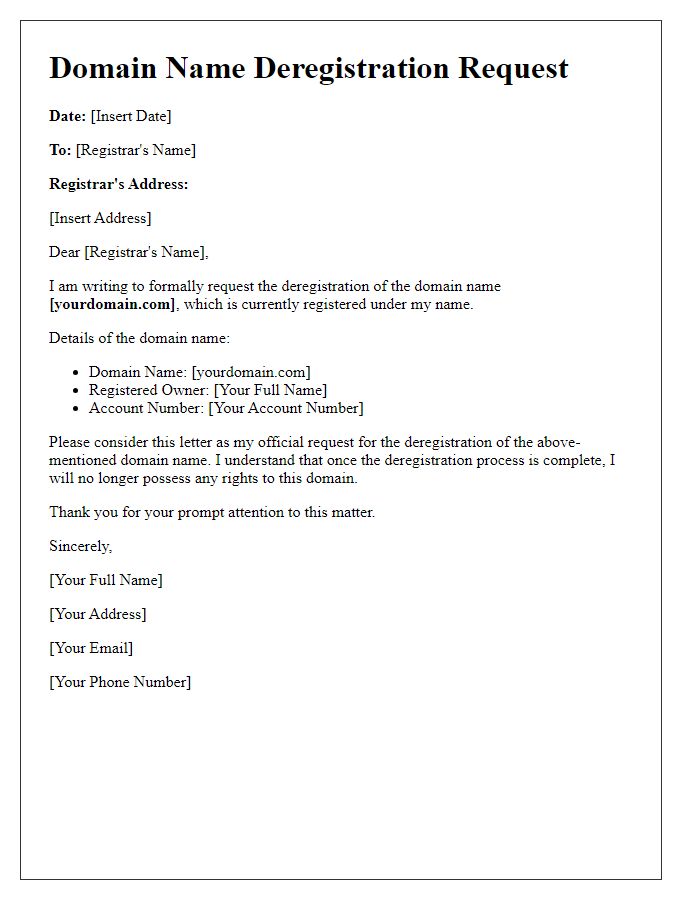


Comments